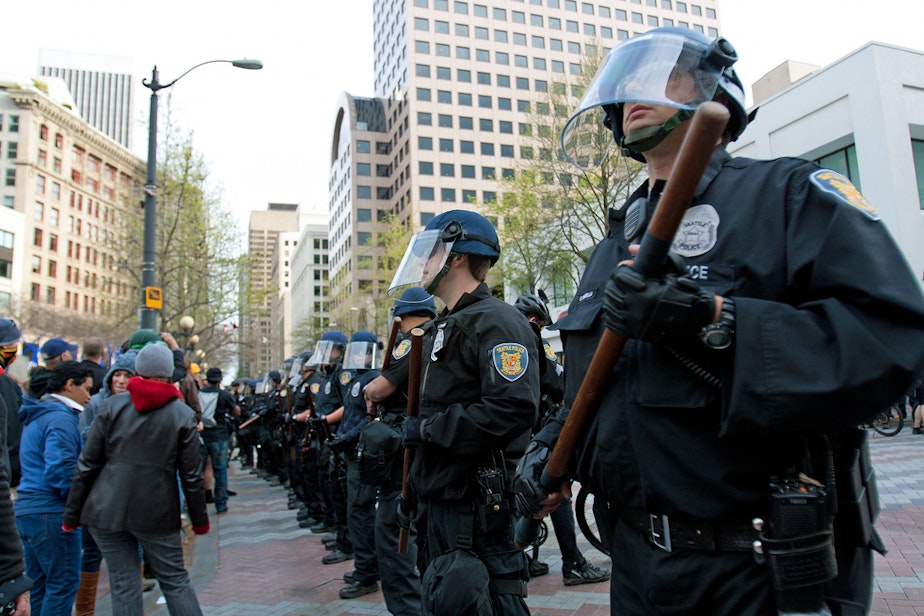The Stranger Goes To Court Over ‘Unjustified Secrecy' In May Day Case

Correction 2/5/2014: The text of this story has been edited to reflect that the court action is a motion (not a lawsuit).
The Seattle newspaper The Stranger is seeking more openness in the case of two witnesses who were detained for refusing to testify before a grand jury by filing a motion to unseal federal court records.
Katherine Olejnik and Matthew Duran were found in contempt of court after refusing to answer questions before a grand jury about the vandalizing of a federal court building in Seattle on May Day 2012.
The two weren’t in Seattle during the demonstrations but appeared to know some of the suspects. They spent five months in federal detention before they were released last spring. They said they chose detention rather than answer questions about their friends' political beliefs.
The records of their cases in U.S. District Court have been sealed by Judge Richard A. Jones.
Sponsored
Brendan Kiley reported on the case for The Stranger. He said the federal court’s secrecy around its treatment of these witnesses is unjustified.
“If things really need to be under seal because there’s some really sensitive information about someone’s identity, about an ongoing case, then that makes sense,” he said, in an interview with KUOW. “But to reflexively seal things that are citing precedents or dockets or other really benign documents, it seems like those things should be open and available to the public.”
The newspaper’s lawyer Neil Fox said while grand jury proceedings themselves are secret, Olejnik’s and Duran’s contempt proceedings were held in open court, and thus there’s no justification for keeping the court transcripts sealed. While those transcripts have become public as part of Fox’s appeal, he said they are still sealed for anyone who searches for case records in the lower court, as are other records in the case.
But even if the Ninth Circuit rules that those records should be unsealed, Kiley said another question may never be answered: Why Olejnik and Duran were placed in solitary confinement for two months, treatment that’s usually reserved for prisoners who present a danger to themselves or others.
“And in fact their attorneys said that that was unusual, that when they’ve had other clients who wound up in solitary, it’s not been difficult to get answers from the prison officials about why,” he said.
Sponsored
Duran’s lawyer complained about the solitary confinement during his detention. A federal prosecutor responded that Duran was there by choice and could gain his freedom by agreeing to testify.
Duran and Olejnik were ultimately released without testifying. They could still face criminal charges for contempt, but Kiley said there haven’t been any indications that prosecutors will seek those charges.
The case goes before the Ninth Circuit Court of Appeals for oral arguments on Wednesday.

